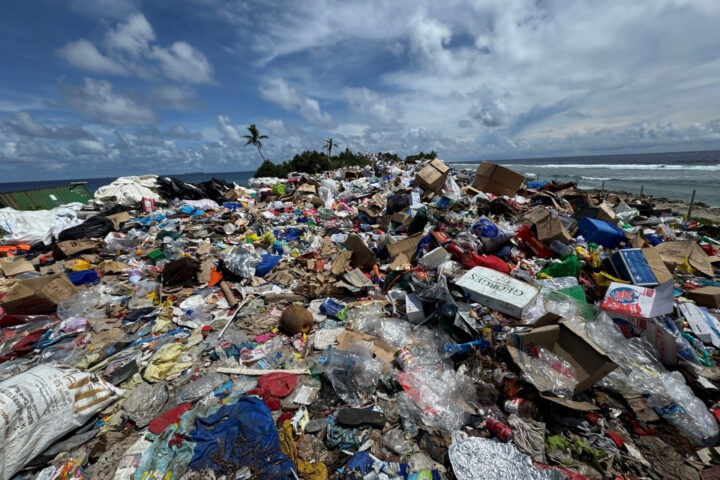Nigeria’s scrap and waste recycling industry is targeting an ambitious creation of an additional 5 million jobs by the end of 2025, in a bold move to deepen its economic impact and capitalise on the growing green economy. Building on recent gains—where waste management already contributed over 1.6 million jobs annually and around 3.2 percent to GDP—the sector plans a major scale-up across the recycling value chain.
Officials and industry experts say the target builds on Nigeria’s estimated 32 million tonnes of solid waste generated each year, of which only a small fraction—less than 20 percent—enters formal recycling streams. By expanding collection, processing, and downstream manufacturing, the sector aims to unlock massive employment potential across urban and rural settings.

Key stakeholders, including the National Association of Scrap and Waste Dealers Employers of Nigeria (NASWDEN) and private-sector players, project that an additional 5 million jobs can be generated through integrating informal waste pickers into structured value chains, strengthening aggregator and processor networks, and enabling scaling of recycling firms. This effort aligns with environmental sustainability goals and the government’s green economy agenda under the UNDP-led Imagine Nigeria report, which places recyclable plastics at the centre of a circular economy estimated at $250 billion.
In cities like Lagos, informal waste collectors—often referred to as “wastepreneurs”—already form the backbone of the value chain. They collect, sort, and deliver plastics, metals, and other recyclables to aggregators, who in turn supply processing companies. Experts estimate that formalising and expanding this ecosystem could generate up to 250,000 jobs by 2025—so the new target represents a transformative leap.
Start-ups such as Scrapays are helping catalyse this shift. With over 1,600 active agents, Scrapays enables recycling pickups via USSD and WhatsApp, offering smart scales and logistics support that simplify collection and expand reach. The company aims to link some 650,000 waste producers to its agents and scale to 21,000 agents in the near term. Early data shows some agents transforming earnings from around $80 to over $3,000 per month within a year of activation—demonstrating job quality and scale potential.
In Ogun State, the Neveah recycling plant is expected to generate 6,000 indirect jobs and 40,000 direct roles in logistics, processing, and export operations for aluminum and copper scrap. With an annual production forecast of several thousand metric tons, the facility illustrates how large-scale infrastructure can complement grassroots recycling to multiply job creation.
Despite the promise, challenges remain. Many recyclers cite limited access to finance, regulatory ambiguity, logistical constraints, and high energy costs as barriers today. Collectors and small processors, in particular, struggle to formalise operations or expand production capacity due to lack of capital and infrastructure.
To address this, industry associations and the government are advocating the establishment of dedicated recycling funds, streamlined licensing frameworks, and subsidies for energy and logistics costs. Improved coordination between federal, state, and local authorities—alongside partnerships with private investors—is also seen as essential to building sustainable recycling ecosystems.
Efforts to professionalise informal segments are already underway. Lagos State Waste Management Authority (LAWMA) and organisations like Wecyclers are formalizing thousands of recyclers, offering training, cash incentives, and integration into broader collection networks. Wecyclers operates cargo bicycle-based pickup services, transforming low-income community waste into cash and reducing pollution in dense urban neighbourhoods.
Observers emphasise that successful scaling will depend on building value at every stage—from collection and sorting to processing and product diversification. Many recycling firms are branching into production of reusable plastics, construction aggregates, packaging materials, and recycled metal products for export.
If Nigeria meets its 5 million job target, the impact could be monumental—supporting livelihoods, reducing environmental pollution, and driving value growth in the green economy. It would also signal a strategic shift in how waste is managed—not as a nuisance but as a resource underpinning innovation, enterprise, and sustainable employment.
Critically, job growth will need investment in training and capacity-building for collectors, agents, processors, and managers across the sector. Development partners, local universities, and vocational institutions are being asked to collaborate in rolling out certification and technical training programs for waste-based careers.
As the sector doubles down on formalisation and expansion, the 2025 mark represents both a challenge and opportunity. Scaling from today’s estimated 1.6 million jobs in waste management to over 6 million in just over twelve months would require unprecedented coordination. But proponents argue that with bold policy support, capital investment, and grassroots mobilisation, Nigeria can meet its promise: turning mountains of waste into millions of jobs by the end of next year.
Support InfoStride News' Credible Journalism: Only credible journalism can guarantee a fair, accountable and transparent society, including democracy and government. It involves a lot of efforts and money. We need your support. Click here to Donate
